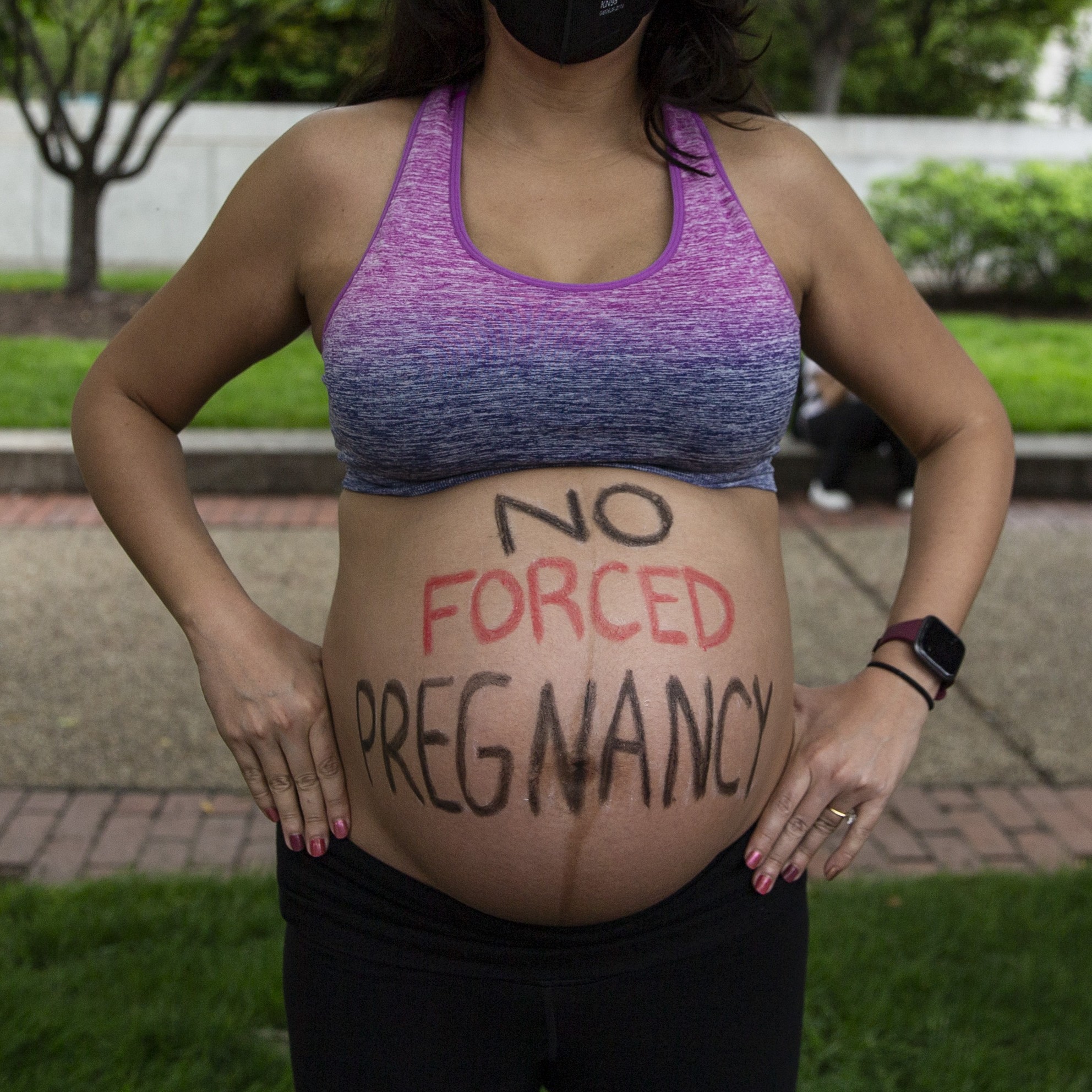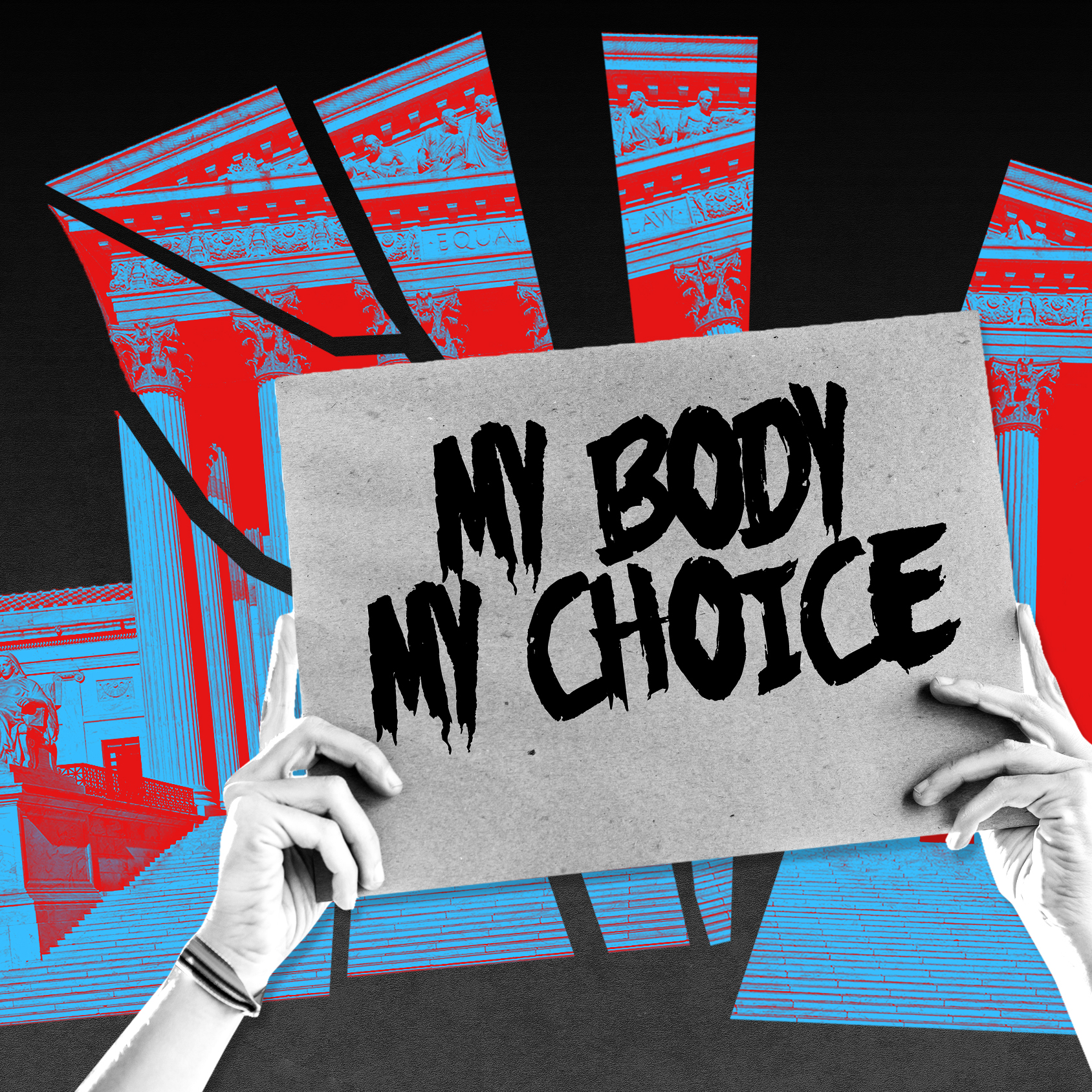Sex Trafficking Victims Are Being Punished. A New Law Could Change That.
Victims of sexual abuse are quietly criminalized. Sara's Law protects kids that fight back.

Sara Kruzan was just 11 years old when she was trafficked. George Howard, whom she referred to as ‘GG,’ groomed Sara for the sex trade and coerced her into prostitution. For more than four years, between ages 11 and 16, Howard subjected Sara to the extreme psychological and physical violence and manipulation that is typical of the sex trade. Social welfare and governmental early warning systems—created to help children like Sara—failed her, leaving her hopeless and helpless. Unable to escape Howard’s grasp, Sara felt compelled to use force against her trafficker. She shot and killed Howard and, while still a minor, was convicted of first-degree murder. None of Howard’s abuse was permitted to be used as evidence in Sara’s defense at her trial; she was sentenced to life in prison without parole at the age of 16.
Sara served almost 20 years in prison before her sentence was commuted by then-California Governor Arnold Schwarzenegger. Sara’s release was the result of tireless advocacy, countless hours of volunteer legal assistance, and seven years of litigation. Without all this hard work, Sara would still be incarcerated today.
The media has recently paid more attention to survivors like Sara. The case of 16-year-old sex trafficking victim Cyntoia Brown, who received life imprisonment for the killing of a man who bought her for sex, raised public awareness and brought attention to the quiet criminalization of sex trafficking survivors. But unless this sympathy is accompanied by legal changes, the criminal justice system will continue to remain punitive for girls like Cyntoia and Sara.
Today, Sara advocates for the passage of federal legislation: the Abolish Trafficking Reauthorization Act of 2022, which was introduced last week by Senators Amy Klobuchar (D-MN) and John Cornyn (R-TX). It will reauthorize the Trafficking Victims Protection Act, a bill that includes Sara’s Law and the Unfair Sentencing Act. This legislation would enable judges to take into consideration abuse or trauma a child sex trafficking victim has endured to ensure that they do not receive lengthy prison sentences. The polices were first introduced in the House by Representative Bruce Westerman (R-AR) in April 2021, though no movement has been made on them since.
While self-defense laws vary from state to state, one common criterion is that the threat must be immediate (such as having a gun held to one’s head). Because Sara, and so many like her, retaliate after years of abuse and trauma, they are not able to claim self-defense. Sara’s case reveals the deficiency of self-defense laws, especially with regard to underage victims who are sometimes tried as adults for killing their abuser. This was the case for 17-year-old Chrystul Kizer, who is being tried for murder for shooting her alleged trafficker after many years of abuse and exploitation. Systematic, on-going sexual abuse and sexual trafficking are crimes perpetrated at all times, not just during specific moments.
Sara’s Law aims to correct the insufficiency of federal self-defense statutes by allowing judges to take age and a history of abuse into consideration when evaluating a minor’s culpability for a crime. It would also allow judges to deviate from mandatory sentences, suspend the entirety of a sentence, and allow cases involving these minors to be adjudicated in juvenile or family court, instead of being sentenced as adults.
According to James Dold, CEO of Human Rights for Kids, “Sara’s Law is really the first national effort to center trauma and child status when courts are deciding how to handle cases of child sex crime victims who have come into conflict with the law. This idea will revolutionize how we treat children in the legal system who have experienced unimaginable trauma.”
Stay In The Know
Get exclusive access to fashion and beauty trends, hot-off-the-press celebrity news, and more.
While guilty verdicts against human traffickers are gratifying for those healing from abuse, they aren’t enough. Sara is only one of many minors who have retaliated against an abuser only to be criminalized by the justice system itself. It’s time to take action for survivors like Sara, and Chrystul, and so many others, by urging our lawmakers to co-sponsor the Abolish Trafficking Reauthorization Act of 2022 and Sara’s Law and to bring them to the House and Senate floors for a vote.
“I wrote Sara’s Law and the Unfair Sentencing Act after meeting with Sara Kruzan and hearing her story,” says Congressman Westerman. “It is unimaginable that children can be sentenced to life without the chance of parole for crimes against their abusers, and I am determined to correct this injustice. Harsh punishments on these children do not make the public safer, but only further their trauma and prevent rehabilitation efforts.”
As Sara says: “It is time that we treat kids like kids and offer compassionate healing opportunities for the children who have endured such abuses.”
The World Without Exploitation Youth Coalition has launched the #KidsArentCriminals campaign, advocating for Sara’s Law. Those wishing to get involved can join the campaign by attending webinars, lobbying their representatives by phone, and advertising the campaign on social media.
The #KidsArentCriminals campaign is spearheaded by the Youth Coalition of World Without Exploitation, an organization dedicated to ending sexual violence and exploitation by advancing just policy and raising public awareness of key legal and cultural factors contributing to sexual abuse and the criminalization of survivors.
Dr. Devin J. Buckley is a professor at Lehman college, a published writer, and an advocate for women’s rights. Erin Regan is a leading voice on the intersection between education and commercial sexual exploitation. She is a Boston based educator, writer and activist. The authors are leaders in the World Without Exploitation Youth Coalition, a network of youth dedicated to ending human trafficking and sexual exploitation.
-
 Princess Anne's Unexpected Suggestion About Mike Tindall's Nose
Princess Anne's Unexpected Suggestion About Mike Tindall's Nose"Princess Anne asked me if I'd have the surgery."
By Amy Mackelden Published
-
 Queen Elizabeth's "Disapproving" Royal Wedding Comment
Queen Elizabeth's "Disapproving" Royal Wedding CommentShe reportedly had lots of nice things to say, too.
By Amy Mackelden Published
-
 Palace Employees "Tried" to Get King Charles to "Slow Down"
Palace Employees "Tried" to Get King Charles to "Slow Down""Now he wants to do more and more and more. That's the problem."
By Amy Mackelden Published
-
 By Going Full "Trad Wife," Republicans Are Saying the Quiet Part Out Loud
By Going Full "Trad Wife," Republicans Are Saying the Quiet Part Out LoudSen. Katie Britt was picked to deliver the State of the Union rebuttal "as a housewife, not just a senator," one GOP lawmaker said.
By Danielle Campoamor Published
-
 36 Ways Women Still Aren't Equal to Men
36 Ways Women Still Aren't Equal to MenFeatures It's just one of the many ways women still aren't equal to men.
By Brooke Knappenberger Last updated
-
 How New York's First Female Governor Plans to Fight for Women If Reelected
How New York's First Female Governor Plans to Fight for Women If ReelectedKathy Hochul twice came to power because men resigned amid sexual harassment scandals. Here, how she's leading differently.
By Emily Tisch Sussman Last updated
-
 Why the 2022 Midterm Elections Are So Critical
Why the 2022 Midterm Elections Are So CriticalAs we blaze through a highly charged midterm election season, Swing Left Executive Director Yasmin Radjy highlights rising stars who are fighting for women’s rights.
By Tanya Benedicto Klich Published
-
 Tammy Duckworth: 'I’m Mad as Hell' About the Lack of Federal Action on Gun Safety
Tammy Duckworth: 'I’m Mad as Hell' About the Lack of Federal Action on Gun SafetyThe Illinois Senator won't let the memory of the Highland Park shooting just fade away.
By Sen. Tammy Duckworth Published
-
 This Bill Wants to Stop Anti-Abortion Groups From Getting Your Private Data. Period
This Bill Wants to Stop Anti-Abortion Groups From Getting Your Private Data. PeriodPost-Roe period tracking apps and search history suddenly have serious implications.
By Emily Tisch Sussman Published
-
 Post-Roe, Pregnant People Will Become Suspects
Post-Roe, Pregnant People Will Become Suspects\201cWe anticipate a very dramatic increase in the rate of criminalization of all pregnancy outcomes.\201d
By Lorena O'Neil Last updated
-
 14 Abortion Rights Organizations Accepting Donations to Support Their Fight
14 Abortion Rights Organizations Accepting Donations to Support Their FightFeatures 'Roe' is no longer the law of the land, but these organizations won't stop fighting.
By Gabrielle Ulubay Published